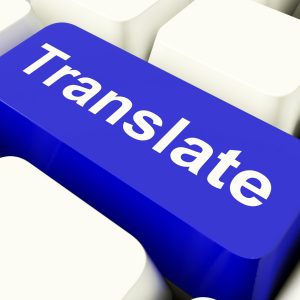 Effective communication is essential to our business, personal, and social relationships. Nuance, tone, feeling, cultural tendencies, and so much more is conveyed through our many communication styles. The written word can evoke joy, pain, and every emotion in between if properly expressed, as is evidenced by great works authored and subsequently translated into languages not native to the writer. Yet, in the fast-moving, technically advanced world we live in, automation has taken away some of personal touch that is often relied upon to provide accurate results.
Effective communication is essential to our business, personal, and social relationships. Nuance, tone, feeling, cultural tendencies, and so much more is conveyed through our many communication styles. The written word can evoke joy, pain, and every emotion in between if properly expressed, as is evidenced by great works authored and subsequently translated into languages not native to the writer. Yet, in the fast-moving, technically advanced world we live in, automation has taken away some of personal touch that is often relied upon to provide accurate results.
Never more evident is this that in the world of automated translation. Without the personal touch only a human can provide, meaning can and does get lost in translation. This is such a big concern that the US Departments of Justice and Education have weighed in on the topic, cautioning federally subsidized organizations, to include state and local governments, not to use web-based automated translations without their review, and if necessary, edit, by a properly trained and qualified human translator.
The Guidance was issued by the DOJ on January 7, 2015, and goes to the heart of what any person will tell you, effective communication, whether within one language or between more than one, is best conveyed and received by humans trained to understand the intricacies of human language. The reliance on web-based automated translators opens the door for a host of problems, the first of which is simple misunderstanding.
However, a simple misunderstanding can have far-reaching consequences; medically, legally, and culturally, to name just a few. A medical document put through an automated translation program can misinterpret vital information specific to procedures, treatments, and diagnoses related to a condition, subsequently putting a patient’s life at risk. The knowledge and experience of a qualified, medically trained human translator, significantly reduces the chance for error.
Specific to the topic of education, the DOJ had this to say in its January 5, 2015 Guidance:
“Some school districts have used web-based automated translation to translate documents. The Departments caution against the use of web-based automated translations; translations that are inaccurate are inconsistent with the school district’s obligation to communicate effectively with LEP parents.
Thus, to ensure that essential information has been accurately translated and conveys the meaning of the source document, the school district would need to have a machine translation reviewed, and edited as needed, by an individual qualified to do so. Additionally, the confidentiality of documents may be lost when documents are uploaded without sufficient controls to a web-based translation service and stored in their databases.”
This acknowledgement of the need for accurately translated documents is important and emphasizes the need for and the value of human experience, knowledge, and comprehension, with its unique characteristics to feel and intuit. While computers and technology can serve us well, only the human can best interpret what another human is saying, whether through simple, direct communication or complex, multilingual translation. What the DOJ is saying is, there is no substitute for human instinct and skill. In translation and other communicative arts, we couldn’t agree more.
